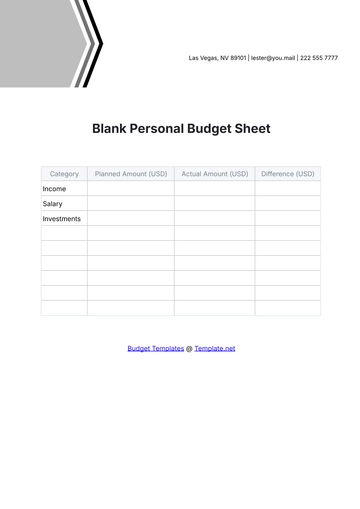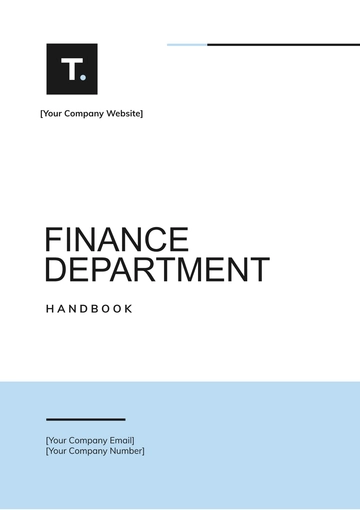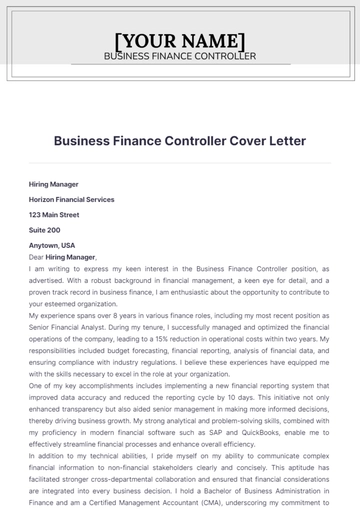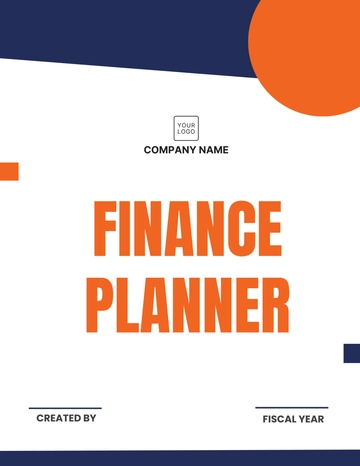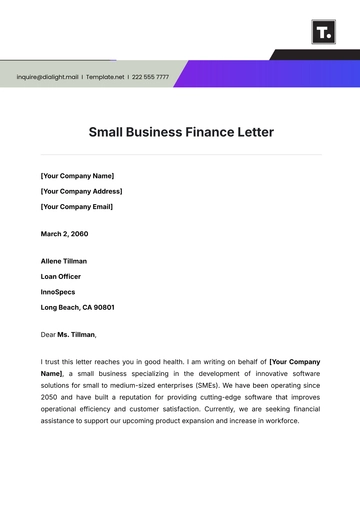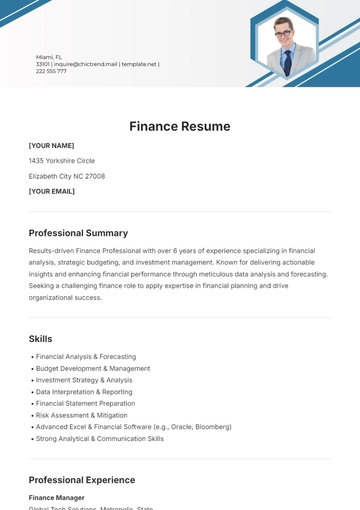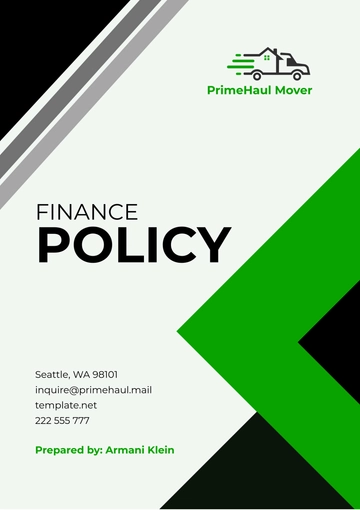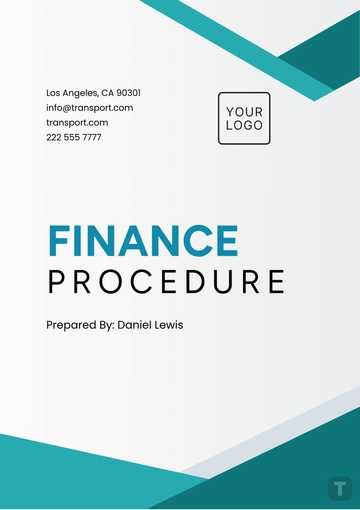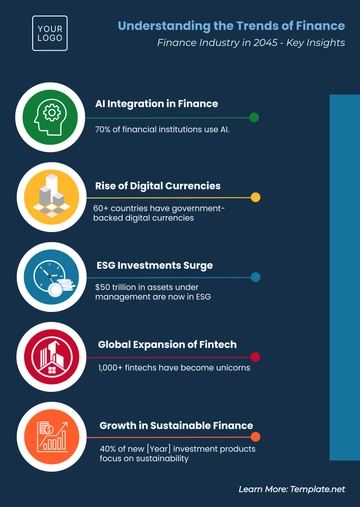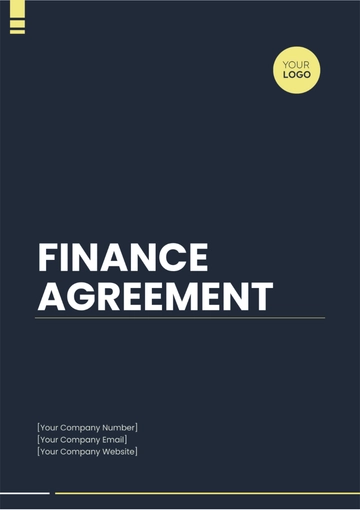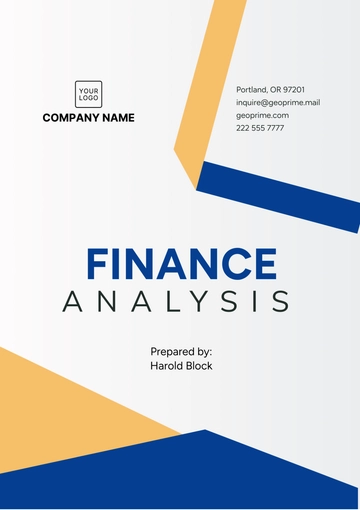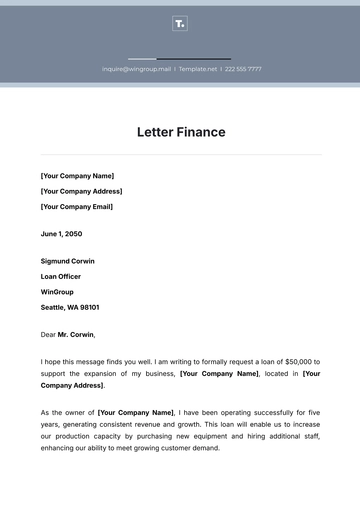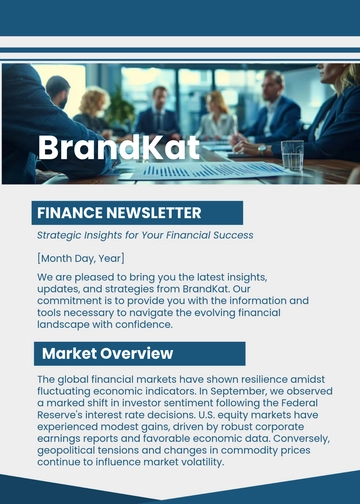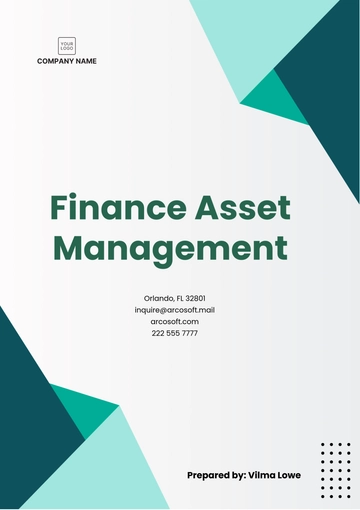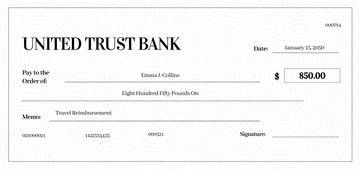Free Marketing Event Financial Protocol

Introduction
Welcome to the Financial Protocol dedicated to the planning and execution of marketing events at [Your Company Name]. As our organization continues to grow and create innovative marketing solutions, it's paramount that we maintain a structured approach to financial management for our events. This document aims to align our operational goals with fiscal responsibility, ensuring a balance between creating memorable experiences and upholding our commitment to financial transparency and sustainability.
Purpose
The purpose of this financial protocol is to offer a comprehensive framework that encapsulates all the financial aspects related to marketing events organized by [Your Company Name]. This entails the preliminary budget proposal phase, expenditure tracking, reconciliation, and post-event financial reporting. By adhering to this protocol, we aim to achieve:
1. To maintain clarity in all financial transactions and ensure stakeholders are kept informed.
2. To ensure every team member involved in the event is answerable for the finances under their jurisdiction.
3. To ensure that we remain financially viable and can continue to invest in future marketing endeavors.
Budget Planning and Approval
A well-planned budget not only ensures that the event unfolds without hitches but also signifies our commitment to financial prudence. This section elucidates the structured steps we employ at [Your Company Name] to seamlessly transition from an event concept to its tangible financial blueprint.
1. Preliminary Planning: Before delving into specific numbers, it's vital to understand the objectives and vision of the event. Teams should collaborate to discuss the goals, potential locations, target audience, and initial ideas, which will serve as a foundation for the budget.
2. Event Proposal: Each event starts as a concept. To transform this concept into reality, a comprehensive proposal should be drafted. This document needs to detail:
a. Nature of the event: Whether it's a product launch, seminar, workshop, or networking event.
b. Purpose: What the event aims to achieve, be it brand visibility, customer engagement, or sales generation.
c. Target Audience: Knowing the audience helps in tailoring the event and its budget effectively.
d. Estimated Expenses: A preliminary breakdown of expected costs.
3. Research and Vendor Quotes: Before finalizing the budget, teams should gather quotes from potential vendors. This helps in getting a realistic view of the costs involved and ensures that the company gets the best value for its investments.
Approval Workflow:
a. Initial Review: The Finance Department conducts the first review, analyzing the proposal's feasibility and alignment with the company's financial strategies.
b. Feedback and Revisions: Post the initial review, feedback is shared with the proposing team. Any necessary revisions are made to fit the financial guidelines and objectives.
c. Final Approval: The adjusted proposal is then presented to the Board of Directors or the relevant approving authority. Only upon their consent is the budget finalized and allocated.
Contingency Planning: Given the dynamic nature of events, unforeseen expenses can arise. A contingency fund, typically 10-15% of the total budget, should be set aside. This ensures that the event can adapt and respond to any unexpected financial demands.
Regular Monitoring: Once the event is in motion, regular check-ins between the event team and the Finance Department are crucial. This ongoing dialogue ensures that expenditures remain within the budget's boundaries and any deviations are promptly addressed.
Budget Allocation
An astute allocation of resources is pivotal for the success of any marketing event. Here at [Your Company Name], we believe in a balanced distribution that ensures both the visibility and efficacy of our events without compromising on quality. This section breaks down the rationale and the distribution of funds across various categories.
Budget Overview:
Budget Category | Amount |
Venue and Logistics | $30,000 |
Promotion | $25,000 |
Guest Speakers/Entertainment | $20,000 |
Food and Beverage | $10,000 |
Miscellaneous | $15,000 |
TOTAL: | $100,000 |
Categories and Justifications:
1. Venue and Logistics: The venue sets the first impression and is central to the attendee experience. Investing in a suitable location, along with the necessary logistics, ensures a seamless event flow and optimal attendee satisfaction.
2. Promotion: Engaging potential attendees and creating a buzz around the event is crucial. This allocation will be used for online advertising, print media, email campaigns, and other promotional efforts to ensure maximum visibility and turnout.
3. Guest Speakers/Entertainment: Renowned speakers or entertainers can significantly amplify the appeal of our event. This allocation ensures we can engage top-notch talent, offering valuable insights or entertainment to our attendees.
4. Food and Beverage: Refreshments and meals are more than just sustenance; they're a part of the overall experience. Quality Food and Beverage services ensure that attendees are well catered to, enhancing their overall event satisfaction.
5. Miscellaneous: From unplanned technical requirements to last-minute décor enhancements, this category ensures we have the flexibility to address any unforeseen needs or capitalize on spontaneous opportunities that might arise during the event planning.
Periodic Review:
To ensure we're always getting the best ROI and staying ahead of industry trends, [Your Company Name]'s Finance and Event departments will periodically review and, if necessary, recalibrate the budget allocation based on past event data and future projections.
Expense Reporting
Accurate and timely expense reporting is more than just a fiscal requirement; it's a testament to our dedication to transparency, accountability, and sound financial management. We consider every penny spent as an investment, and as with all investments, we must be able to trace, justify, and derive value from it.
1. Documentation Essentials: Every expense, no matter how minuscule, should be documented. The essentials of this documentation include:
a. Date of Expense: This ensures timely reconciliation and aids in cash flow management.
b. Category: Categorizing expenses helps in tracking against the allocated budget and in understanding spending trends.
c. Description: A brief note detailing the nature of the expenditure.
d. Amount: The exact monetary value, ensuring there are no round-offs unless specified.
e. Vendor/Service Provider: Helps in maintaining a record of entities we're doing business with and aids in future negotiations or partnerships.
f. Receipt/Invoice: Physical or digital proof of the transaction. Essential for audits and financial verifications.
2. Digital Tools and Platforms: To facilitate and streamline the reporting process, the company leverages state-of-the-art digital tools and platforms. These tools:
a. Offer real-time expense tracking
b. Allow for the attachment of digital receipts
c. Enable team collaboration and instantaneous approvals
3. Reporting Timeline: All event-related expenses must be reported within 48 hours of the transaction. This ensures that the Finance Department has a near-real-time view of the expenditures and can provide timely feedback or adjustments if necessary.
Verification and Audits: Random audits will be conducted to ensure adherence to reporting protocols. This not only maintains the integrity of our financial data but also fosters a culture of accountability and diligence.
Reconciliation Process
At [Your Company Name], we've developed a robust reconciliation process, underpinning our aspiration to maintain unerring financial accuracy and integrity. This section delves into the systematic steps we undertake to reconcile, review, and refine our financial strategies for marketing events.
1. Post-Event Reconciliation: Within 10 days following the event, the team responsible for the event's finances must prepare a detailed report. This report should juxtapose the actual expenditures against the pre-allocated budget, highlighting:
a. Areas of savings
b. Over-expenditures
c. Justifications for any deviations
2. Analytical Review: This isn't just about numbers. The Finance Department will conduct an analytical review, which involves:
a. Identifying spending trends and patterns
b. Pinpointing areas of consistent over or under-spending
c. Drawing insights that can influence future budget allocations
3. Discrepancy Resolution: Any discrepancies that arise during the reconciliation process will be thoroughly investigated. This involves:
a. Consulting with the teams or individuals responsible
b. Reviewing supporting documentation
c. Determining if the discrepancy was a one-time anomaly or indicative of a larger issue that needs addressing
4. Documentation and Archival: Once the reconciliation process is complete, all related documents, including the initial budget, invoices, and final expenditure report, will be archived. This ensures that we have a historical record, which can be invaluable for future event planning, financial audits, and maintaining institutional knowledge.
Emergency Fund
Events, by their very nature, are dynamic and can sometimes be unpredictable. While meticulous planning is our forte at [Your Company Name], we recognize the need to be financially prepared for unforeseen circumstances. The Emergency Fund is a testament to our proactive approach, ensuring we're always equipped to handle unexpected financial demands without compromising the quality or success of our events.
1. Allocation Criteria: The size of the Emergency Fund is typically set at 10-15% of the total event budget. However, this can vary based on:
a. The scale and nature of the event.
b. Historical data on past events and their emergent needs.
c. The risk profile of the event location and logistics.
2. Access and Approval: Tapping into the Emergency Fund is not a routine process and requires:
a. The Event Manager should notify the Finance Department about the need to utilize the fund.
b. A brief rationale must be provided, detailing why the fund is being accessed and its expected impact.
c. The Finance Team, in consultation with senior management, will review the request. Access to the fund requires rapid yet prudent decision-making, ensuring the fund's judicious use.
3. Replenishment Strategy: Post-event, the Emergency Fund should be replenished to its initial amount. If it remains unused, it can be rolled over to the next event or reallocated based on the company's financial strategies.
Vendor Payments
The efficacy and success of a marketing event often hinge on the vendors we collaborate with. From staging and sound systems to catering and logistics, vendors play a pivotal role in shaping the attendee experience. At [Your Company Name], our commitment to maintaining seamless relationships with our vendors extends not just to the quality of work they provide but also to the timeliness and transparency of our payment processes.
Our approach to vendor payments is multi-faceted. First and foremost, we emphasize detailed contracts that clearly specify payment terms, including amounts, schedules, and any conditions or milestones associated with each payment. This clarity serves as the foundation for avoiding potential disputes or misunderstandings down the line. However, it's not just about setting terms; it's about adhering to them. Leveraging cutting-edge financial software, we track and schedule payments, ensuring they align with cash flow management while guaranteeing punctuality.
Furthermore, we remain receptive to vendor queries and concerns regarding payments. An open channel of communication is maintained at all times, wherein vendors can seek clarifications, provide invoices, or discuss any potential changes. This proactive dialogue not only ensures smooth operations but fosters a sense of partnership.
Conclusion
In the intricate tapestry of marketing events, every financial thread – from budgeting and sponsorships to vendor payments – holds significance. At [Your Company Name], our Financial Protocol isn't just a set of guidelines; it's a reflection of our values, emphasizing transparency, diligence, and respect in all financial interactions. As we navigate the multifaceted realm of event management, this protocol stands as our compass, ensuring that our financial endeavors are as impeccable as the events we craft. Through strategic planning, open communication, and unwavering commitment to our stakeholders, we endeavor to not only meet but exceed expectations, setting new benchmarks in the industry.
- 100% Customizable, free editor
- Access 1 Million+ Templates, photo’s & graphics
- Download or share as a template
- Click and replace photos, graphics, text, backgrounds
- Resize, crop, AI write & more
- Access advanced editor
Introducing our Marketing Event Financial Protocol Template, exclusively crafted for meticulous professionals. Developed by experts at Template.net, this editable and customizable document ensures seamless keyword integration, optimizing your event's financial strategies effortlessly. With our intuitive Ai Editor Tool, streamline your planning process and elevate your marketing endeavors with precision and ease.
